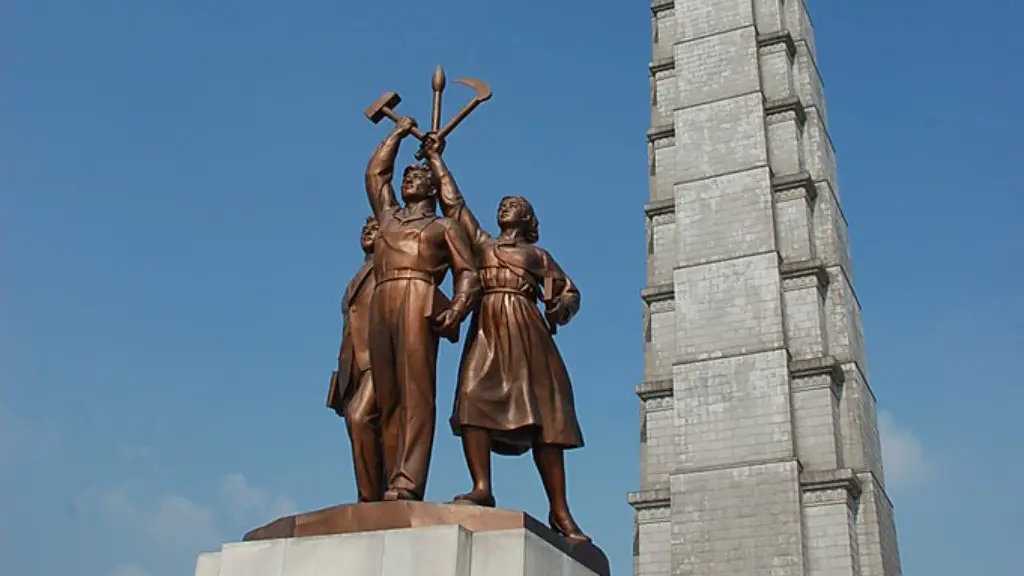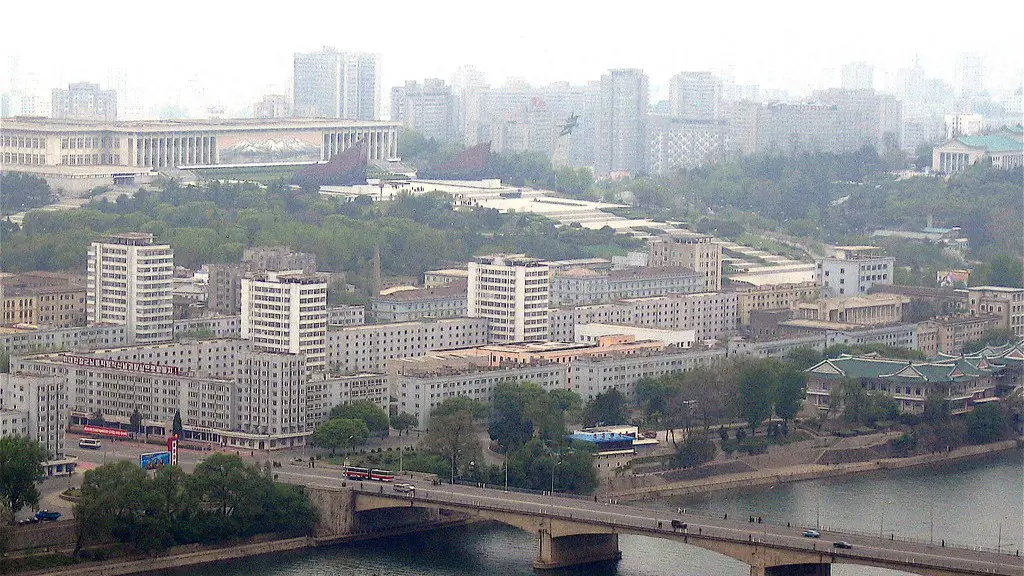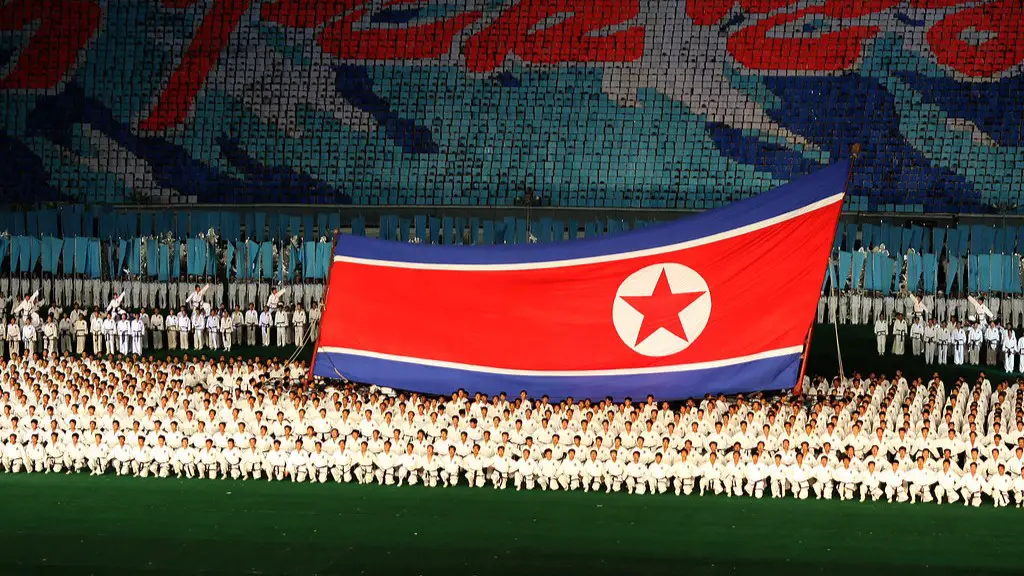Comprehensive Overview Of Sanctions On North Korea
The prevalent status of global sanctions on North Korea has become an international issue of great concern. Despite North Korea’s efforts to comply with UN resolutions, the sanctions remain a major impediment to their international affairs, especially to their economy. Before examining the present situation, it is important to understand the full context of the issue.
One of the earliest claims of North Korea’s failure to comply with UN Security Council resolutions was made in 2006, when the United States imposed financial sanctions on North Korea. The U.S. alleged that North Korea was involved in nuclear activities, in violation of several resolutions, and that any kind of economic assistance given to the country had to be approved by the Security Council. Since then, other countries, such as Japan and the European Union, have implemented similar sanctions against the country.
In 2017, the United Nations took even stronger action against North Korea. The resolution implemented a variety of economic and financial sanctions, ranging from a complete ban on oil exports to the frozen assets of individuals and entities linked to North Korea’s nuclear programme. These are intended to cut off North Korea’s access to foreign currency, which is a major source of income for the nation. Other countries, such as the United States and the European Union, have since also imposed their own additional sanctions on North Korea, further limiting the country’s international activities.
The sanctions have had a major impact on North Korea’s economy, as the country is largely dependent on foreign trade and investment. The sanctions have cut off North Korea’s access to the global financial system, making it difficult for North Korea to transact economically with other countries. The resulting economic hardship has led to food insecurity and economic deprivation in some parts of the country.
The goal of the sanctions is to bring North Korea to the negotiating table to discuss dismantling its nuclear weapons programme. However, while the sanctions have had an impact on the country, they have not succeeded in bringing North Korea to the negotiating table. This is due in part to the fact that North Korea is a closed, authoritarian country, and the sanctions have done little to change the country’s internal dynamics. In addition, the sanctions have been criticized by some as merely a means of punishing the country, while not doing much to effect genuine change. This has led many to call for a more comprehensive approach to resolving the issue.
Impacts Of Sanctions On North Korean Population
The implementation of sanctions on North Korea has had a major impact on the North Korean population. The sanctions have severely restricted the country’s access to the international economy, leading to a significant decrease in the availability of food and other essential supplies. This has resulted in food insecurity, as well as malnutrition and starvation, in parts of the country. Moreover, the sanctions have put a great strain on the country’s finances, as the country has to pay for importation of essential goods and services.
The sanctions have also resulted in job losses and a decrease in economic productivity. This has led to a decrease in wages and living standards, as well as a rise in poverty in the country. Moreover, the sanctions have had an impact on the quality of health care in the country, as access to medicines and medical equipment has decreased significantly. Finally, the impact on ordinary North Koreans can be seen in the increasing number of North Koreans fleeing the country in search of a better life.
It is clear that the sanctions have had a significant impact on the North Korean population. The impact on the people’s livelihoods, health, and education has been immense, and the increasing number of North Koreans fleeing the country is a testament to this. As such, it is imperative that a more comprehensive solution to the issue of sanctions on North Korea be considered.
Alternatives To Sanctions On North Korea
There are several alternatives to the sanctions that have been proposed. For instance, some have argued that the focus should be on engaging the North Korean leadership in meaningful dialogue, rather than on punishing the people of North Korea. This would involve creating an environment in which meaningful negotiations could take place, such as through the creation of an international forum or body to mediate negotiations.
Others have argued that the sanctions are not an effective tool to dissuade North Korea’s nuclear activity, and that other measures, such as diplomatic and economic engagement, should be employed. Such measures would involve providing North Korea with access to foreign markets, thereby allowing them to engage in constructive dialogue with other countries and potentially increasing investment in the country.
Finally, there are those who argue that the sanctions are ineffective and should be lifted in order to give North Korean citizens access to basic goods and services. This would involve engaging with the North Korean government and working to ensure that the country’s economic and human rights are respected, while providing the country with access to the global economy.
Economic And Political Trends In North Korea
Since the imposition of sanctions, there have been some economic and political changes in North Korea. For example, the country has increased its economic trade with China as well as other countries. This has resulted in increased inflows of foreign currency, and the North Korean government has been able to use this to invest in its economy. The North Korean government has also sought to diversify the country’s economy away from its reliance on raw materials from China, and is now increasingly diversifying into the service sector and high-tech manufacturing.
In addition, the North Korean government has also been making efforts to improve its foreign relations, most notably with its neighbor South Korea. This has resulted in a number of cooperative initiatives between the two countries, such as the opening of joint business ventures and the establishment of diplomatic relations.
Finally, the recent election of Kim Jong-un as President of North Korea has raised the possibility of new reforms and changes. This has led some to speculate that the North Korean government may be interested in opening up to the world and reducing its reliance on sanctions as a means of economic survival.
Political Resolution For Sanctions On North Korea
Given the impact that sanctions have had on the North Korean population, there is a need for a more comprehensive and coordinated political strategy to resolve the situation. This would involve engaging all major powers, including the United States, China, South Korea, and Japan, to find a mutually beneficial resolution to the issue. The key would be to ensure that any agreement would respect North Korea’s autonomy, while also allowing for the international community to monitor North Korea’s compliance with UN resolutions.
An important part of this process would also be for the international community to support North Korea’s economy as it transitions away from sanctions. This could involve providing North Korea with aid, investment, and access to global markets. It could also involve removing some of the sanctions that have been imposed, or providing exemptions to certain sectors, in order to help North Korea develop economically.
Ultimately, the aim of such a strategy should be to find a peaceful resolution to the issue of sanctions on North Korea. This would involve finding a way to negotiate a resolution between all parties involved, while also ensuring that North Korea complies with UN resolutions and international norms. This may prove difficult to achieve, as the United States and other countries have significantly different views on how best to handle the situation. However, with good faith negotiations, a political agreement on the sanctions on North Korea could be reached.
The Role Of International Organizations
In order for a political resolution to be reached on the issue of sanctions on North Korea, it is essential that the international community be involved in the process. International organizations, such as the United Nations and the International Atomic Energy Agency, play a critical role in negotiating a resolution between all parties. Additionally, these organizations can provide oversight to ensure that North Korea is complying with any agreement that is reached.
In addition, these organizations can provide guidance to North Korea on how to transition away from sanctions. This could involve providing North Korea with technical expertise, as well as economic assistance, in order to help the country develop economically and reduce its reliance on sanctions.
Finally, the international community can also provide support to those countries that are seeking to engage with North Korea. This could include providing economic and financial support to countries that are willing to invest in North Korea, as well as providing diplomatic and political support to those countries that are engaging in negotiations with North Korea.
Conclusion
It is clear that the issue of sanctions on North Korea is a complicated and delicate one. In order to find a resolution, it is essential to engage in meaningful dialogue between all parties involved, while also ensuring that North Korea complies with its international obligations. Additionally, the international community can provide support to North Korea as it transitions away from sanctions by providing the country with technical expertise, aid, and investment. Finally, international organizations can play a key role in mediating the negotiations between all parties, and in providing oversight of the situation moving forward.





